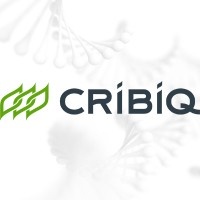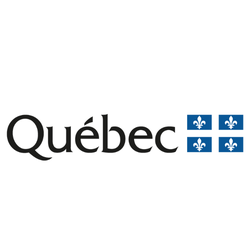
Closed
CRIBIQ — INNOV-R
Last Update: October 27, 2025
QC, Canada
Innovative GHG reduction through collaboration in bioeconomy in Quebec
Grant and Funding
At a glance
Funding available
Financing goals
Reduce the ecological footprint
Research and experimental development
Eligible Funding
- Up to 40% of project cost
Timeline
- Open Date : July 9, 2023
- Closing date : October 28, 2023
Eligible candidates
Eligible Industries
- Agriculture, forestry, fishing and hunting
- Manufacturing
- Administrative and support, waste management and remediation services
Location
- Quebec
Legal structures
- For-profit business
Annual revenue
- All revenue ranges
Organisation size
- All organization sizes
Audience
- Canadians
- Startups
Overview
The INNOV-R — CRIBIQ grant supports innovative collaborative projects in Quebec's bioeconomy sectors—including agri-food, industrial bioproducts, and environment—focused on reducing greenhouse gas emissions as part of the province's climate targets. This program finances research and pilot initiatives that contribute to achieving Quebec’s greenhouse gas reduction goals by 2030; the maximum funding amount is not specified in the available information.
Activities funded
- Collaborative projects in the agri-food sector focused on reducing greenhouse gas emissions.
- Innovation initiatives in the industrial bio-products sector aimed at decreasing GHG emissions.
- Environmental projects targeting the reduction of greenhouse gas emissions within Quebec's bioeconomy.
Examples of admissible projects:
$ 1,100,000
Research on sustainable urban agriculture methods in collaboration with Université Laval
$ 1,500,000
Development of a CO2 capture technology for industrial plants in collaboration with Université de Sherbrooke
$ 1,950,000
Developing a zero-emission public transportation system in partnership with Polytechnique Montréal
$ 1,200,000
Innovative solar panel recycling with École de technologie supérieure (ÉTS) to reduce electronic waste
$ 900,000
Developing biodegradable packaging solutions for the food industry with Concordia University
$ 2,250,000
Implementation of a smart energy grid in residential areas in collaboration with McGill University
Eligibility
- The project must be collaborative and innovative.
- The project must address the reduction of greenhouse gas (GHG) emissions in Quebec.
- The project must target sectors served by CRIBIQ: agri-food, industrial bioproducts, or environment.
Who is eligible?
- Agri-food sector companies
- Industrial bioproducts sector companies
- Environmental sector organizations
Eligible geographic areas
- Quebec
How to apply
1
Consultation of documents
- Download the 2023-2024 Applicant Guide from the RSRI website.
- Read the guide to understand the requirements of the INNOV-R program.
2
Eligibility Validation
Contact Jean Philippe Chenel, Director of Innovation, to confirm the project's eligibility.
3
Preparation of the required documents
- Obtain the required forms for the submission of the Detailed Application.
- Prepare the GHG emissions reduction calculation form.
4
Assistance for the calculation of GHG reduction
Obtain before October 20, 2023 the necessary support for calculating the reduction of greenhouse gas emissions.
5
Submission of the detailed request
- Complete the Detailed Application with all required information.
- Submit the Detailed Application before the deadline of October 27, 2023.
Additional information
- The INNOV-R program is part of the Quebec government's Plan for a Green Economy (PEV 2030).
- No letter of intent is required for this funding opportunity.
- The grant supports innovative and collaborative projects within its targeted sectors.
- Applicants are encouraged to review the Guide des déposants 2023-2024 for detailed program information.
Contacts
418-446-7187
QC, Canada
Apply to this program
Frequently Asked Questions about the CRIBIQ — INNOV-R Program
Here are answers to the most common questions about the CRIBIQ — INNOV-R. This section explains what the program is, how much funding is available, eligibility requirements, application deadlines, and other important details to help you determine if this grant is right for your business.
What is the CRIBIQ — INNOV-R?
How much funding can be received?
What expenses are eligible under CRIBIQ — INNOV-R?
What is the deadline to apply?
Is the CRIBIQ — INNOV-R a grant, loan, or tax credit?
Who are the financial supporters of the CRIBIQ — INNOV-R?
Who is eligible for the CRIBIQ — INNOV-R program?
Who can I contact for more information about the CRIBIQ — INNOV-R?
Where is the CRIBIQ — INNOV-R available?
Are startups eligible for the CRIBIQ — INNOV-R program?
Apply to this program
More programs like this

Grant and FundingClosed
MAPAQ — Food Processing Program — Component 2
Ministry of Agriculture, Fisheries and Food (MAPAQ)Enhancing productivity through food industry automation assistance

Grant and FundingOpen
Support for biofood exports - individual projects
Ministry of Agriculture, Fisheries and Food (MAPAQ)SEB supports Quebec agri-food market expansion outside Quebec

Grant and FundingOpen
ÉcoPerformance — Recommissioning of building mechanical systems
Gouvernement du QuébecFunding to optimize the operation of building mechanical systems

Grant and FundingSuspended
Individual Market Access Support (SIAM)
Aliments du QuébecMarket Access Support for Quebec Food Processors

Loans and Capital investmentsOpen
Financing to respond to the offensive of new tariffs and for initiatives for resilient and exporting companies (FRONTIERE)
Investissement Québec (IQ)Supports Québec exporters impacted by new U.S. tariffs

Grant and FundingOpen
Electricity Management Systems
Hydro-QuébecMoney for energy management systems in Quebec

Grant and FundingClosed
Program to support the development of agriculture and agri-food in the regions
Ministry of Agriculture, Fisheries and Food (MAPAQ)Support program for regional agriculture and agri-food development

Grant and FundingOpen
Efficient Solutions Program — Agricultural Component
Hydro-QuébecMaximize your farm's energy efficiency and save money with the Enhanced Efficient Solutions Program

Grant and FundingClosed
PADAAR — Measure 4021 – Promotion of regional products
Ministry of Agriculture, Fisheries and Food (MAPAQ)Supports regional agri-food promotion and consumer awareness initiatives

Grant and FundingClosed
GHG Challenge Program - Industry
Environnement Québec (MELCC)Supports major industrial projects reducing greenhouse gas emissions
Sign up to our platform to access the CRIBIQ — INNOV-R information sheet for free
Get access to 4,000+ programs, practical guides, personalized alerts, and an AI assistant to support your grant applications.